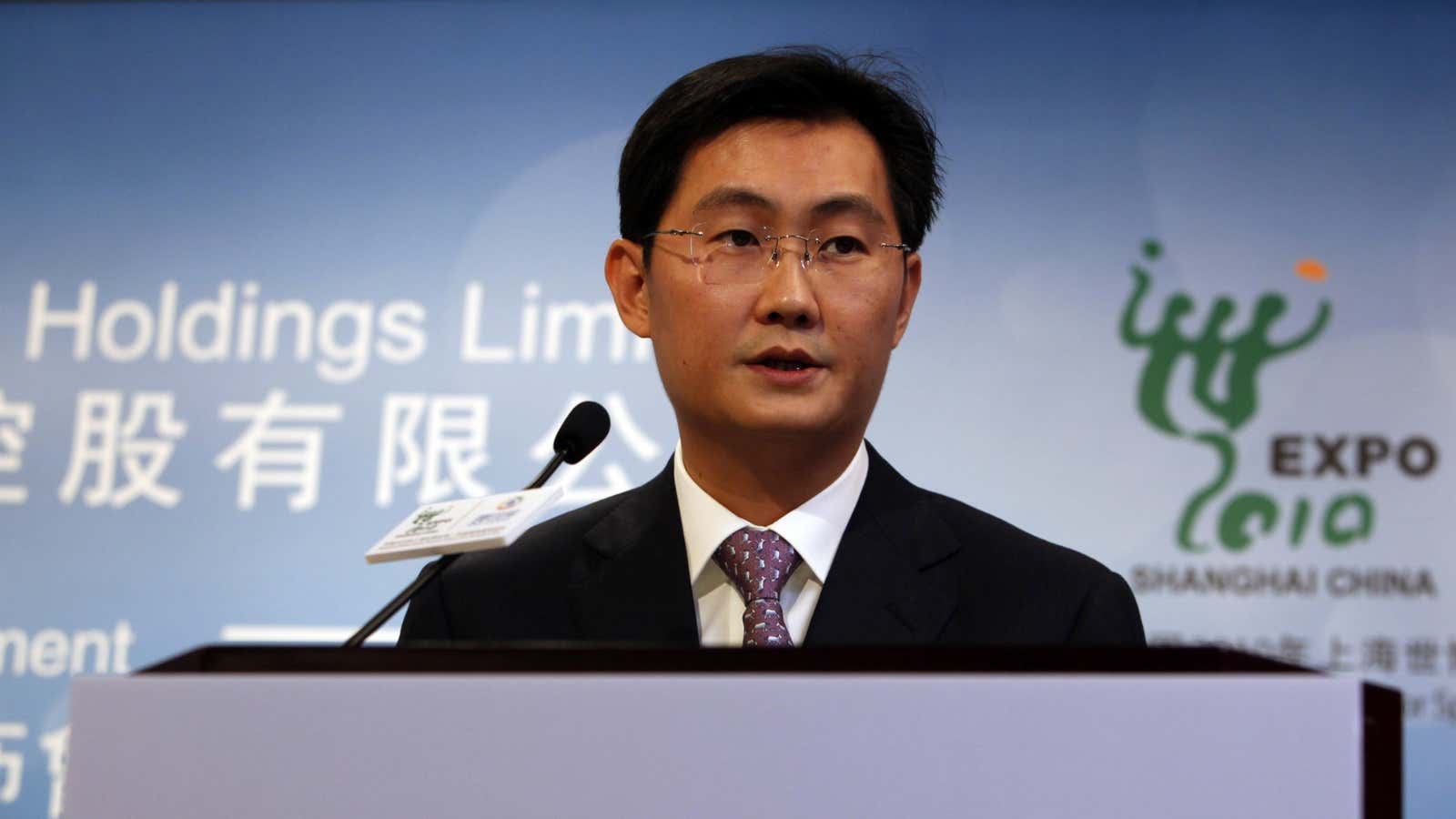Tencent, the biggest digital company in China, just announced that its revenue in 2012 was $7 billion, up 54% year-on-year (here’s the pdf). While the company’s online games cash cow is responsible for a lot of that—a big chunk of the $5 billion from the internet value-added services segment—the notable things in Tencent’s earnings are probably the furious growth of its online B2C business and the company’s steady expansion overseas.
E-commerce stole the show as the source of Tencent’s fastest growth. Annual revenue for 2012 came in at just $704 million, and since it’s a new segment, there aren’t any 2011 comparisons. But income grew almost 50% on the quarter, picking up momentum from the 32% sequential increase in Q3.
While some of that was seasonal, it also signals fundamental growth in the industry. This hints that Tencent’s investments in QQ Buy, its B2C platform, are beginning to pay off. Plus, it’s not stopping there—the company flagged that it was investing in infrastructure to grow its e-commerce services. And that means that what was a face-off between Alibaba’s Tmall and 360Buy might become even more crowded, real fast. (As we highlighted yesterday, Suning is entering this race as well, tapping China’s corporate debt markets in a way that suggests it’s planning to go big.) Sure, QQ Buy has a lot of ground to gain. But Tencent has a fantastic record for taking out first movers.
Tencent says it’s “exploring integration points” between Tencent Weibo—the company’s microblog site that competes with Sina’s more famous platform—and its mobile messaging app Weixin (aka WeChat). While not surprising, that’s bad for Sina, as Weixin has fast become the app of choice of “white collars” in China, as tech blogger Kai Lukoff explained recently, and a more seamless tie-up of the two platforms could spur Sina Weibo attrition. The company noted that it now has 300 million Weixin and Weibo users.
Tencent’s international footprint continues to grow, mainly through its overseas online games business. Not only did Tencent flag “significant growth in international markets” for its games revenues, but it has been focusing on investing in overseas game developers. And so, the penguin continues its march overseas.
